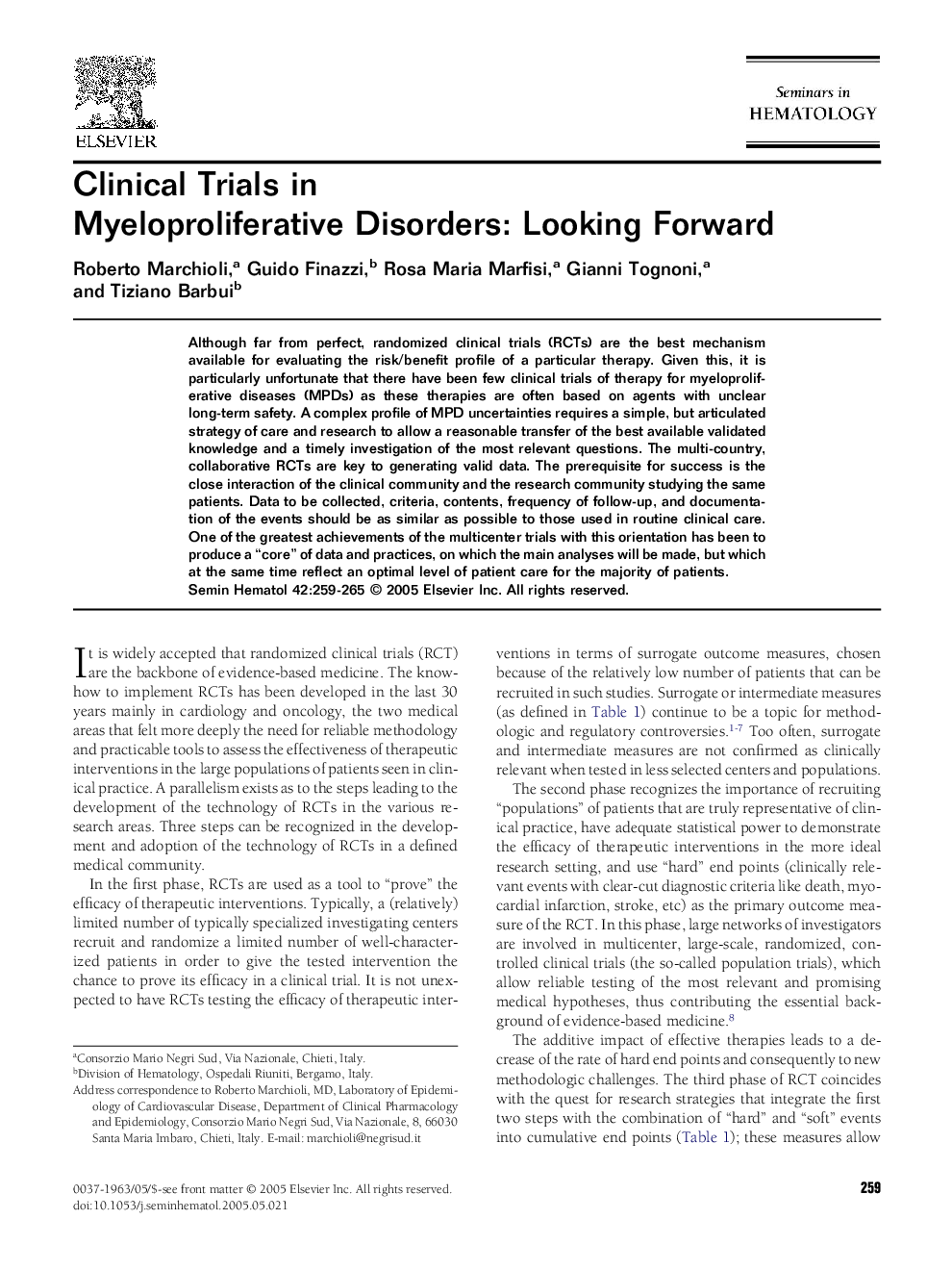| Article ID | Journal | Published Year | Pages | File Type |
|---|---|---|---|---|
| 9258413 | Seminars in Hematology | 2005 | 7 Pages |
Abstract
Although far from perfect, randomized clinical trials (RCTs) are the best mechanism available for evaluating the risk/benefit profile of a particular therapy. Given this, it is particularly unfortunate that there have been few clinical trials of therapy for myeloproliferative diseases (MPDs) as these therapies are often based on agents with unclear long-term safety. A complex profile of MPD uncertainties requires a simple, but articulated strategy of care and research to allow a reasonable transfer of the best available validated knowledge and a timely investigation of the most relevant questions. The multi-country, collaborative RCTs are key to generating valid data. The prerequisite for success is the close interaction of the clinical community and the research community studying the same patients. Data to be collected, criteria, contents, frequency of follow-up, and documentation of the events should be as similar as possible to those used in routine clinical care. One of the greatest achievements of the multicenter trials with this orientation has been to produce a “core” of data and practices, on which the main analyses will be made, but which at the same time reflect an optimal level of patient care for the majority of patients.
Related Topics
Health Sciences
Medicine and Dentistry
Hematology
Authors
Roberto Marchioli, Guido Finazzi, Rosa Maria Marfisi, Gianni Tognoni, Tiziano Barbui,
